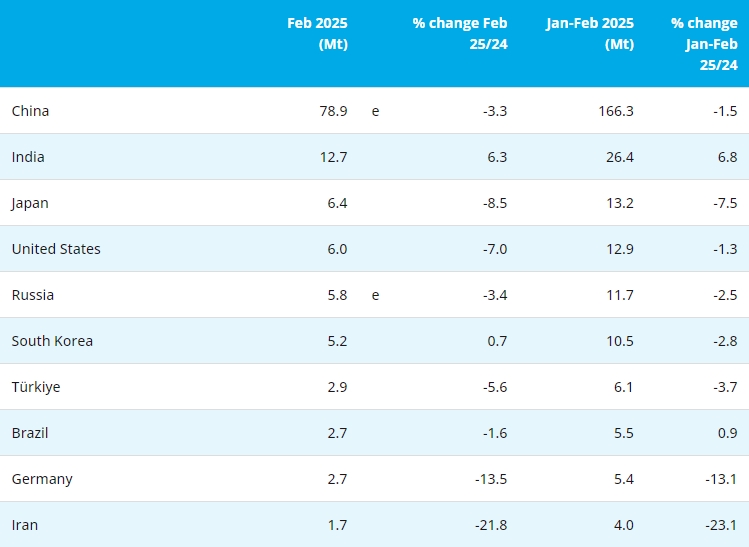New Caledonia is weighing lifting restrictions on the sale of nickel ore to China as world prices for the metal tumble and the future of a key Australian customer is in doubt. New Caledonia has long resisted selling ore directly to large consuming countries such as China in order to preserve its domestic smelting and refining industry, a main source of revenue for the South Pacific French Territory.
But a steady decline in nickel prices is putting pressure on New Caledonia's three smelters, owned by Glencore , Vale and Eramet subsidiary Societe Le Nickel, cutting export revenue for the government. Combined the three smelters supply 10% of world demand. At the same time, Queensland Nickel (QNI), one of Australia's biggest nickel refineries, was forced into voluntary administration. "We must find alternatives in case of failure from QNI," New Caledonia President Philippe Germain told local media on Tuesday, as he detailed a government emergency plan to address the impact on the economy.
New Caledonia is awash with nickel ore, holding as much as a quarter of the world's known reserves, and the metal dominates the economy. QNI imports about three-million tonnes of ore a year from New Caledonia. Exports of ore to China would be limited to two-million tonnes, according to the action plan. No timeframe was given for a final decision. The government would also consider activating a long-discussed nickel sovereign fund to benefit future generations.
Germain voiced concerns that ore prices could quickly fall without a floor price, and warned against allowing sales of low grade nickel pig iron, fearing it could hurt more than help the country's nickel sector. Nickel pig iron is a cheaper-price ore widely used among China's steel manufacturers to make low-grade stainless steel items, such as pots and pans, computer frames and home fixtures.
Indonesia in 2014 banned metal ore shipments in hopes of encouraging miners to build smelters and shift exports from raw materials to higher-value finished metals. But the ban has so far cost the country billions of dollars in lost revenue. London Metal Exchange nickel fell to a 12-year low of $7 550 on February 11.
- [Editor:Juan]



 Save
Save Print
Print Daily News
Daily News Research
Research Magazine
Magazine Company Database
Company Database Customized Database
Customized Database Conferences
Conferences Advertisement
Advertisement Trade
Trade








 Online inquiry
Online inquiry Contact
Contact

Tell Us What You Think